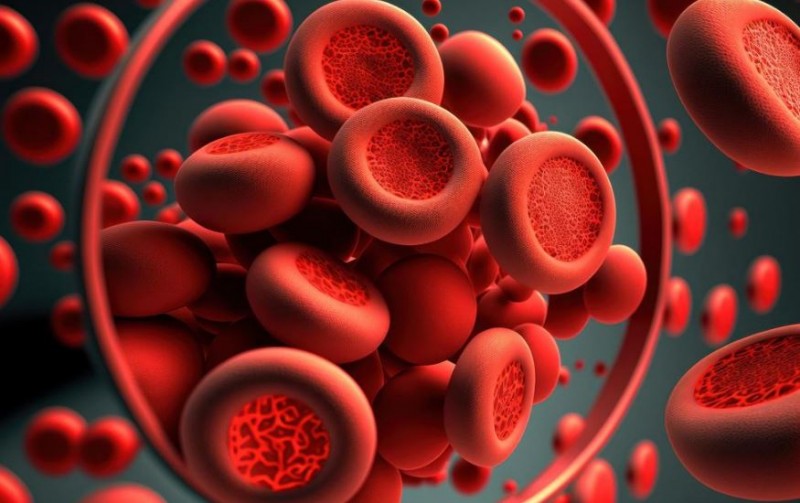
Hemoglobin is a vital protein found in red blood cells that carries oxygen from the lungs to every part of the body. Maintaining optimal hemoglobin levels is crucial for overall health and vitality. Low hemoglobin levels, known as anemia, can lead to fatigue, weakness, and even more severe health complications. Fortunately, there are numerous natural ways to increase hemoglobin levels and support overall well-being. In this article, we will explore a range of strategies to boost hemoglobin levels through dietary choices, lifestyle adjustments, and holistic approaches.
1. Nutrient-Rich Diet
A well-balanced diet rich in iron, vitamin B12, folate, and other essential nutrients is fundamental in increasing hemoglobin levels. Here are some dietary guidelines to consider:
a) Iron-Rich Foods: Incorporate iron-rich foods into your diet such as lean meats, poultry, fish, beans, lentils, tofu, spinach, kale, and fortified cereals. Iron is a key component of hemoglobin production and plays a pivotal role in preventing anemia.
b) Vitamin B12 Sources: Vitamin B12 is crucial for red blood cell formation. Animal products like meat, poultry, fish, eggs, and dairy are excellent sources of B12. For vegetarians and vegans, fortified plant-based milk and supplements can help meet their B12 needs.
c) Folate-Rich Choices: Folate, or vitamin B9, is essential for the synthesis of DNA and new cells, including red blood cells. Dark leafy greens, citrus fruits, legumes, and fortified grains are great sources of folate.
d) Vitamin C Enhancement: Vitamin C aids in the absorption of non-heme iron (found in plant-based foods) and contributes to better hemoglobin levels. Citrus fruits, strawberries, bell peppers, and broccoli are rich in vitamin C.
2. Herbal Remedies and Supplements
Several herbal remedies and supplements are known to boost hemoglobin levels:
a) Nettle Leaf: Nettle leaf is rich in iron and can help increase hemoglobin levels. It can be consumed as tea or added to meals as a nutritious ingredient.
b) Spirulina and Chlorella: These nutrient-dense algae are high in iron and other essential nutrients. They can be added to smoothies or taken in supplement form.
c) Iron Supplements: In cases of severe iron deficiency, supplements might be recommended by a healthcare professional. However, it's important to use supplements under medical supervision to avoid excessive iron intake.
3. Hydration and Fluid Intake
Adequate hydration supports optimal blood circulation and helps prevent blood from becoming too viscous. Drink plenty of water throughout the day to ensure that blood flows smoothly, aiding in the transport of oxygen.
4. Regular Exercise
Engaging in regular physical activity helps stimulate the production of red blood cells and enhances blood circulation. Aim for a mix of cardiovascular exercises, strength training, and flexibility exercises for overall health benefits.
5. Stress Management
Chronic stress can lead to hormonal imbalances that might affect hemoglobin production. Incorporate stress-reduction techniques such as meditation, deep breathing exercises, yoga, or mindfulness practices into your daily routine.
6. Ensure Quality Sleep
Adequate and restful sleep is crucial for the body's repair and maintenance processes, including red blood cell production. Strive for 7-9 hours of quality sleep each night to support hemoglobin production and overall well-being.
7. Avoid Negative Habits
Smoking and excessive alcohol consumption can negatively impact blood cell production and hemoglobin levels. Quitting smoking and moderating alcohol intake can greatly contribute to better overall health and hemoglobin levels.
8. Consult a Healthcare Professional
Before making significant changes to your diet or lifestyle, it's important to consult a healthcare professional, especially if you suspect you have anemia or any underlying health conditions. A doctor can perform tests to determine your hemoglobin levels and recommend appropriate interventions.
Increasing hemoglobin levels naturally requires a holistic approach that encompasses dietary adjustments, lifestyle modifications, and mindful habits. By prioritizing nutrient-rich foods, staying hydrated, exercising regularly, managing stress, and getting adequate sleep, you can support optimal hemoglobin production and maintain overall health. Remember, each individual's needs are unique, so consulting a healthcare professional is essential to develop a tailored plan that suits your specific requirements. By taking proactive steps, you can enhance your hemoglobin levels and enjoy improved vitality and well-being.
Global Summit on Traditional Drugs: Bridging Ancient and Modern Practices, says Mandaviya
Embrace Besan: 5 Creative Ways to Boost Your Diabetes Diet
Is Chicken Good For Diabetics? Exploring the Diabetes-Friendly Benefits of Chicken Consumption